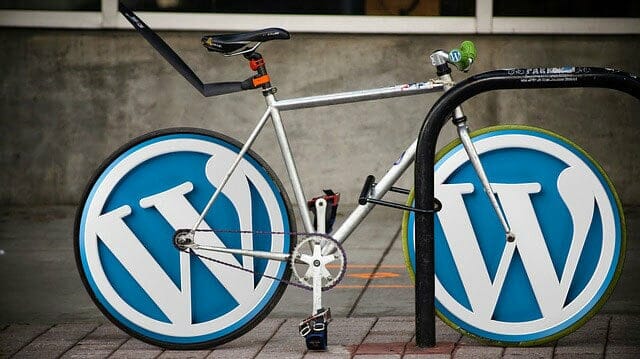If you own a business (big or small), then you’re all about making the most of your time, money, and other resources. To save money, you may very well attempt the “do it yourself” (DIY) route in establishing your own online presence.
When you invest in a website, you’re not just investing in a link you can put on your business cards and/or other marketing materials. You are actually investing in a 24/7 sales and marketing rep who is always working to promote your brand, bring in new customers, keep current customers happy, and ultimately improve your bottom line WITHOUT ever getting sick nor asking for a raise.
You may have also wondered if you need to learn code or any techie stuff to build your own website.
The answer is a resounding no!
Many tools out there make it easier than ever to take the DIY route in building your own website without ever messing with code. There is no need to learn HTML5, CSS3, Javascript, or any other programming languages (unless you plan on majoring in computer science).
The #1 Tool I Recommend
Out of all the available tools, I recommend creating your own self hosted WordPress website. Here is a brief overview of creating your own self hosted WordPress website:
● You register your domain (the web address; www.nameofyourwebsite.com)
● You set up a hosting account (this refers to the “virtual land” your website is built on)
● You install WordPress (open source – or free – software that enables you to build and update your website without ever dealing with a line of code)
● You install your WordPress (WP) theme – the “framework” for your website that determines its look and feel
● You install your WP plugins – apps that add functionality to your websites such as cybersecurity or online forms
● You create your web pages and content
With a self-hosted WP website, you own all the content and can put whatever you want on the website. It’s just like owning your own home – you are in charge of your virtual space.
NOTE: the majority of hosting companies make it really easy to install WordPress onto your website, often with just one click.
Why WordPress?
Here is why I recommend WP:
● At least 35% of all websites are powered by WordPress
● It is open source (you get access to an online community of over 10,000 developers who are constantly working to make the product better and better)
● You don’t need to know any other programming languages to build a professional website with WordPress
● Most of the time if you need an extra feature for your website (such as having an online form or cybersecurity) instead of hiring someone to write code you could search for an available plugin (these are like the apps on your smartphone)
● Many successful and “big name” companies – such as CNN, Disney, and Sony Music just to name a few – are powered by WordPress
Bottom line: whether you’re a big business or a lean entrepreneur, anyone can create a professional website with WordPress.
Also, consider this: when the Global Data Protection Regulation (GDPR) went into effect in May 2018, all websites became required to ensure visitors that any data collected would be respected and kept confidential. Thanks to the excellent community of WordPress developers, plugins were developed to help make websites GDPR compliant. In most cases, this eliminates the need to hire expensive lawyers.
The #1 WP Theme I Recommend
There are hundreds of WP themes to choose from. Some are free, and some cost money.
When taking the DIY route, it’s typically best to use a page builder theme like Divi, Elementor, Beaver Builder, or another similar one. These make it very easy to customize the look and feel of your web pages and overall website (without touching any code).
Out of the different WP themes I’ve worked with, I recommend the Divi theme from Elegant Themes the most.
Why Divi?
● They make it very easy to design your pages on the front end and make updates in real-time
● Their support team is very helpful and responsive
● Elegant Themes is always innovating and updating this theme
● Every week they come out with a new premade layout (to serve as a “starting point” or inspiration for a new design project)
● It has multiple built-in functionalities for helping you achieve all kinds of cool effects for your website
With just one annual license from Elegant Themes, you can use the Divi theme on as many WP websites (personal or client) as you’d like.
The Only Thing You Have to Worry About
Since WordPress and the Divi theme take away the need to learn to code, there is only one real thing you have to worry about.
It is planning out your online presence.
You have multiple factors to consider with website planning such as:
● Your online goals
● Your color scheme
● Your font scheme
● Which web pages you’ll need
● Content for those web pages
● And the list goes on
Just as you would make a blueprint before building a house, likewise, you’ll want to make a “website blueprint” before building anything online.
How do you make a “website blueprint?”
Upcoming 3 Day Website Planning Bootcamp
On May 18, 2020, I am putting on a free 3 Day Website Planning Bootcamp for service-based solopreneurs, startups, and other non-techie entrepreneurs who are ready to begin the very first step of the website creation process: making a “website blueprint.”
If you tried making your own website in the past but failed, it’s not your fault. Many website creation projects fail because there was no solid plan in place from the start.
This COVID 19 pandemic has forced many businesses to adapt in order to survive. If your business is not yet online, there is no better time than now!
Are you ready to make a plan for your website?
You can reserve your spot by signing up.
The above article is a Guest Post written by Andrew Martinez. He is the owner of Powerful Digital Solutions and a WordPress Website Consultant.
You can also check out his website.


